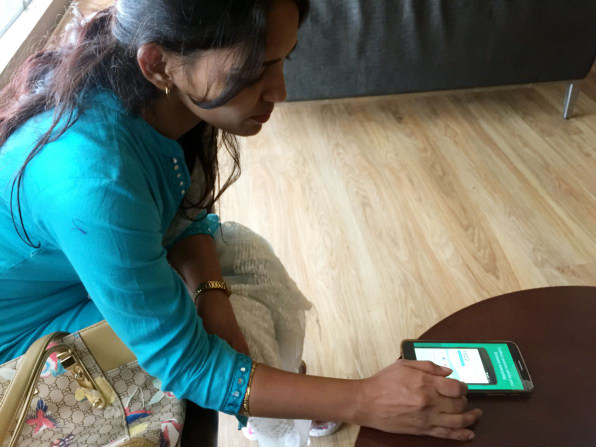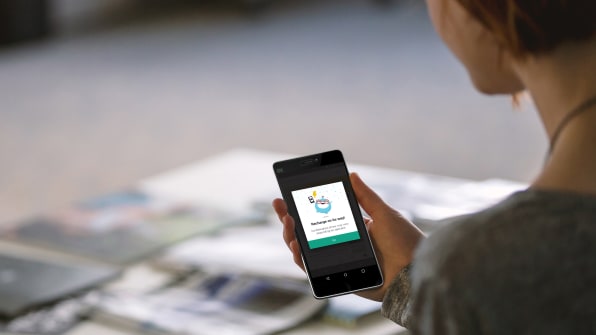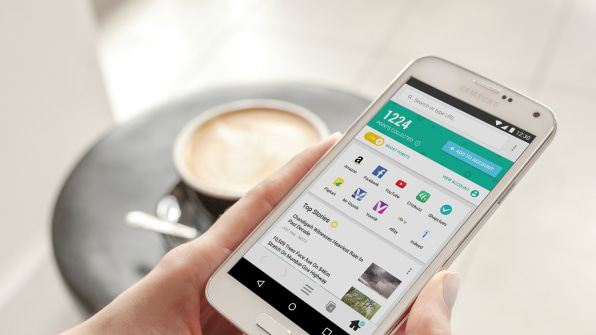
When Facebook tried to offer a version of free internet in India, it didn’t go very well. The company’s app, called Free Basics–which Mark Zuckerberg has billed as a way to help bring people out of poverty through connectivity–gives access only to limited sites (like Facebook). India eventually banned it and similar services for violating net neutrality, the principle that internet service providers shouldn’t favor particular sites.
A lesser-known company is trying a different approach. Jana, a Boston-based tech company, helps smartphone users in the developing world get online free through the support of ads. MCent, the company’s mobile browser, which can access any site, displays a variety of ads from advertisers such as the NBA, Amazon, and Saavn, a site that streams Hindi music. Then it uses that ad revenue to pay for the data that consumers use. On the back end, the technology can identify a phone number and network, and then credits money into that person’s account.
“We started the project to figure out a way to provide truly unrestricted internet access for a billion people,” says Jana founder Nathan Eagle.
The company launched its browser in India in July, and within three months it had a million users. Every six weeks since then, the number of users has roughly doubled. For users, the savings can be significant; in some cases, people pay around 10% of the average daily wage on connectivity. In India, for example, where many people live on around $30 a month, a monthly phone bill with data can cost $3. In many emerging markets around the world, where smartphone ownership is quickly growing, people who own smartphones can’t afford data plans.Jana says that it is able to earn more money from ads than it spends to offset data costs–paying for up to 70 megabytes of data daily per user who otherwise would have racked up pay-as-you-go charges–as advertisers begin to shift to targeted mobile ads. Advertisers now spend roughly $200 billion in emerging markets, often on traditional platforms.

“That’s currently essentially going into the pockets of the people who own the billboards in Lagos, or the radio stations in Sao Paolo, or the TV networks in Delhi,” says Eagle. “If we can get 10% of that spend redirected away from those big media owners, and instead going directly to the very consumers that each brand is trying to reach, then we’d be able to provide a billion people with free, unrestricted internet access.”The company first began developing its technology a decade ago, and initially offered users internet access in exchange for completing surveysfrom organizations like the United Nations. But they quickly realized that there wasn’t demand for market research at the scale they could provide–tens of millions of people–and the business model couldn’t support their goal, so they shifted course to advertising.
Jana’s mission is similar to that of projects like Alphabet’s Project Loon, which uses high altitude balloons to create wireless networks, or plans from Elon Musk and Richard Branson to use satellites to do the same thing. Facebook has tested solar-powered, internet-beaming drones. But while Project Loon aims to bring internet to remote areas–or to disaster zones, as in Puerto Rico–Jana is focused on reaching the 90% of people in emerging markets who have connectivity and just can’t afford to use it.

“When you look at something like Project Loon . . . the reality is they’re trying to provide coverage to populations that are not accessible by the cellular network,” says Eagle. “But the reality is those populations are diminishing in size pretty dramatically in size as cellular networks become more and more ubiquitous. So while they’re great projects, that’s not the problem we’re trying to solve.”
The company now provides free internet access to 40 million-plus users in 15 markets. It plans to expand in Southeast Asia, sub-Saharan Africa, and Latin America. “If this continues to scale, I think we have a reasonable shot at getting to a billion users in three to five years,” Eagle says.
Source;-w.fastcompany




